
GIVE THIS RAMADAN
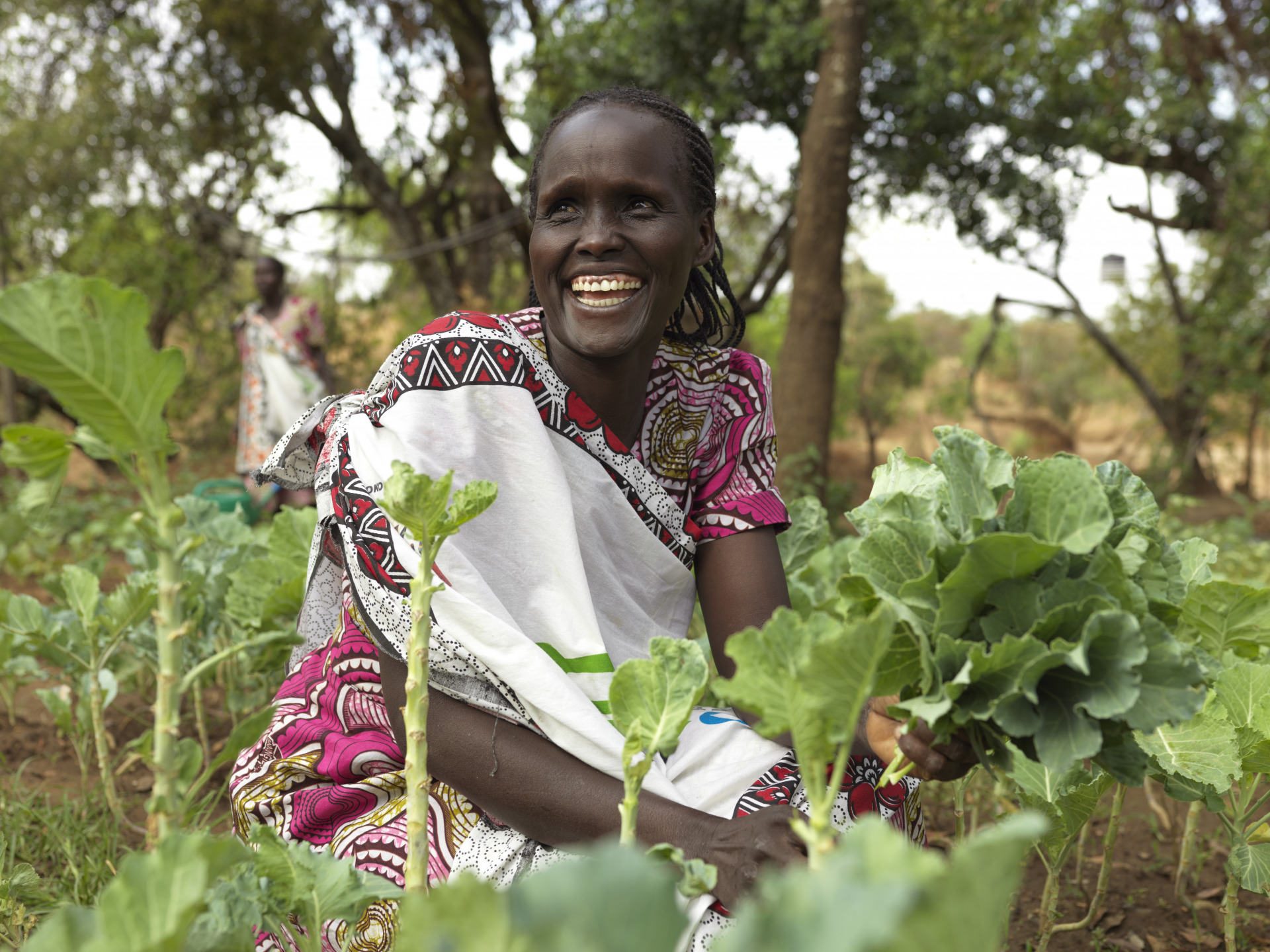
Rosina leads a group of more than 20 women in Kapkitony, a village in northwestern Kenya, in the fight against hunger. Their work is more important now than ever, as the severe, prolonged drought in the Horn of Africa puts more than 20 million people at risk of hunger.
Food shortages were a constant source of anxiety for Rosina and her fellow mothers. The women depended on rain to grow crops and could only plant seasonal vegetables. When the drought hit, they lost entire harvests because there wasn’t a nearby source for water to irrigate the land.
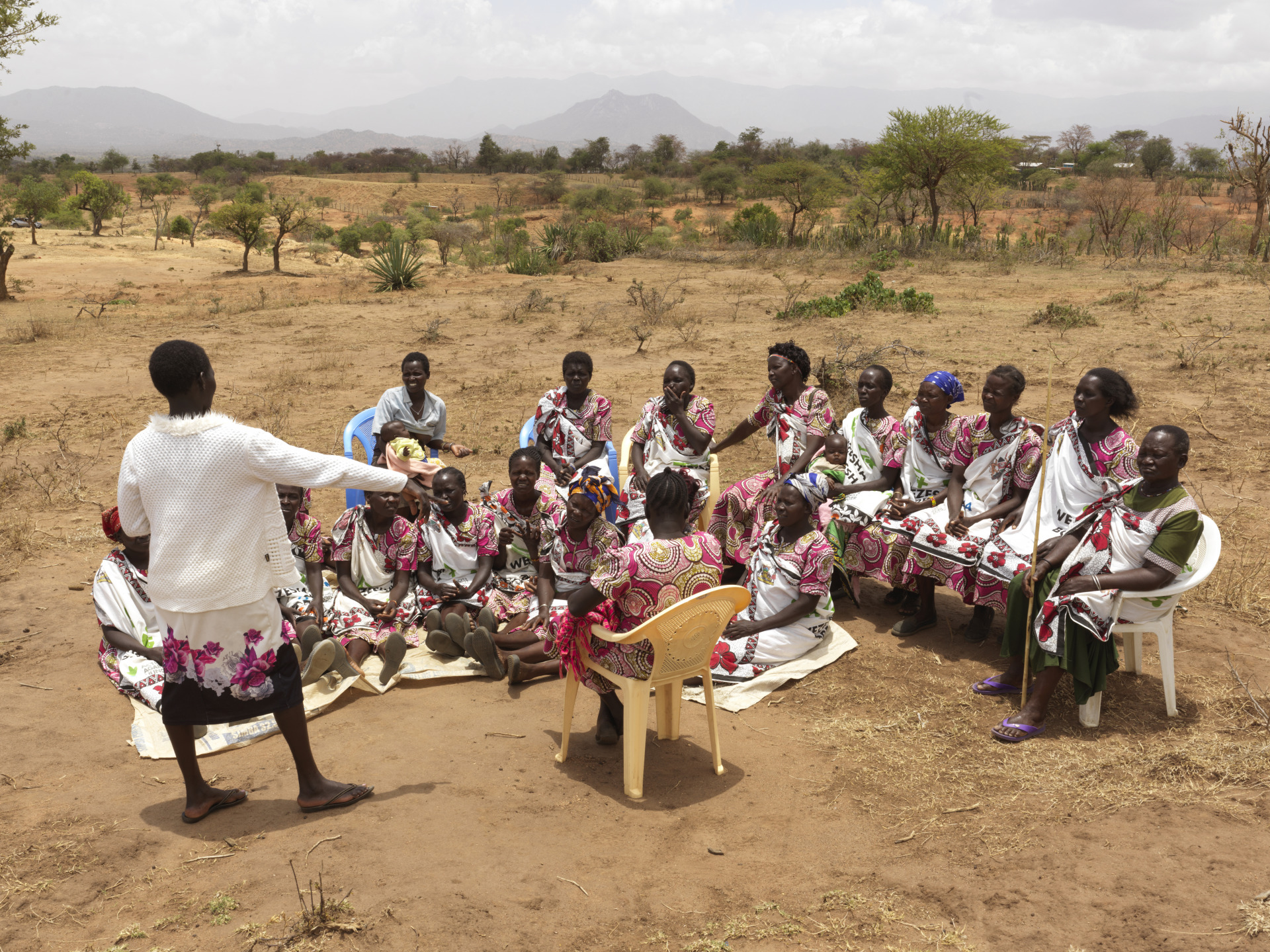
Despite these challenges, the mothers, motivated by Rosina, persevered. They attended one of Action Against Hunger’s trainings to learn new agricultural techniques. Our teams also repaired the community’s only water pump, and converted it to run on solar energy, allowing the women to irrigate their gardens.
“In the past, we didn’t have this kitchen garden, but when Action Against Hunger came and rehabilitated the borehole…it gave us a lot of motivation,” says Rosina. “With that borehole, our mother-to-mother support group set itself a challenge: that each one of our members should have at least one kitchen garden.”
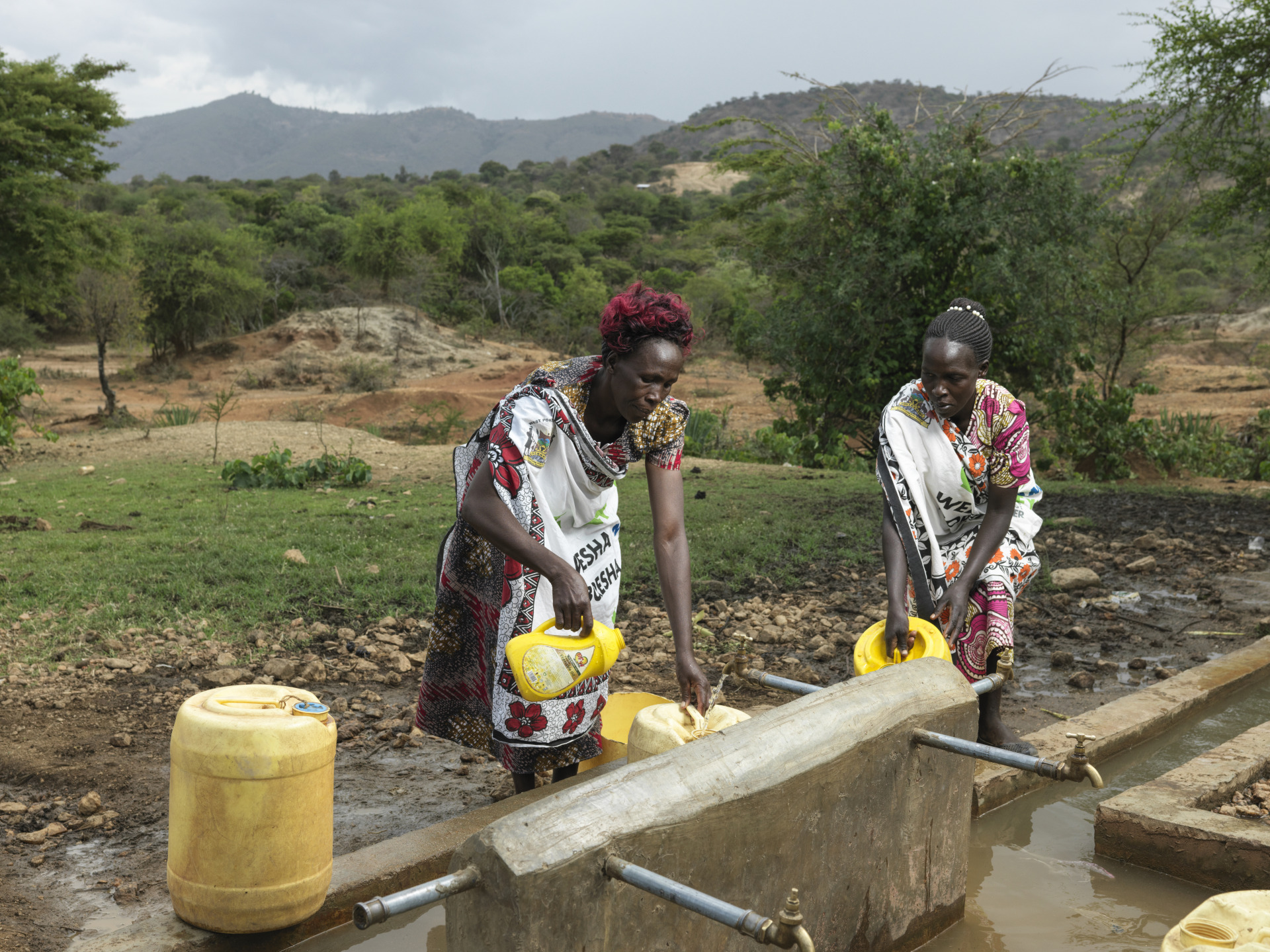
In Kapkitony, mothers support each other with everything from post-partum care to child-rearing. Through the strength of their bond, the women achieved their goal: each one has her own garden. As a result, the health and nutrition of their families has radically improved.
“We used to only eat cabbage, but now we have a variety of vegetables,” says Rosina as she points to the rows of vegetable beds in the garden. “We don’t have that monotony anymore. Today we can eat spinach, tomorrow kale, the day after amaranth [a nutritious grain similar to quinoa]. I can see that the health of our children has really improved, thanks to the variety of vegetables.”
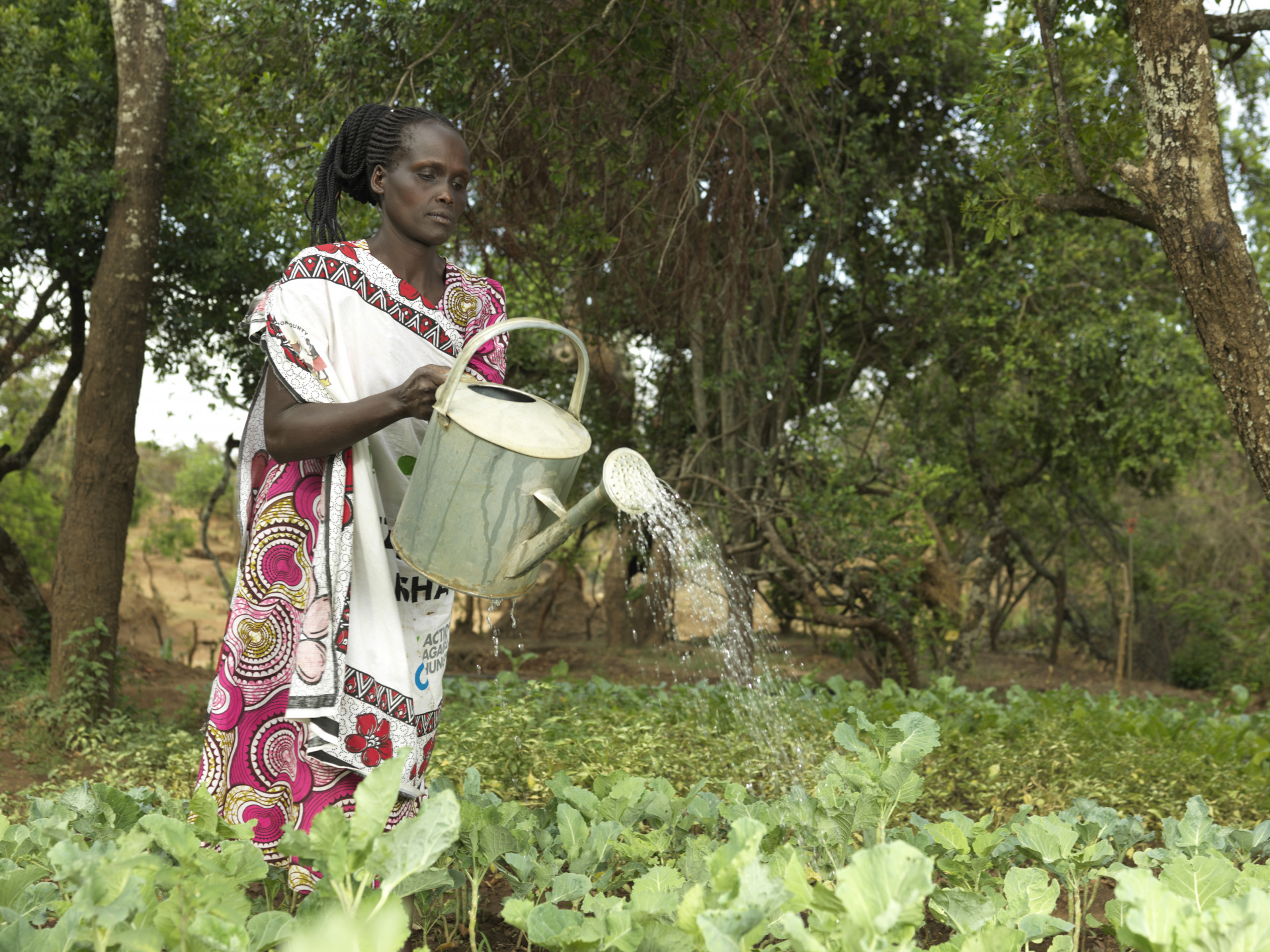
Sprinklers shower young seedlings while holes in the ground retain water for more drought-sensitive plants. “Action Against Hunger connected us with the Ministry of Agriculture, who came and trained us on various kitchen garden techniques including sunken beds, raised beds, and even how to prepare a nursery bed,” explains Rosina proudly as she crouches to show a bed of black-eyed peas, which are known locally as cowpeas.
“There are cowpeas, amaranth, and other drought-tolerant varieties. We use technologies like sunken beds, which retain water, so we only use a little water. This is what we mean by smart agriculture…Our garden is drought tolerant.”
These agricultural methods have revolutionized this women’s group and their whole community.
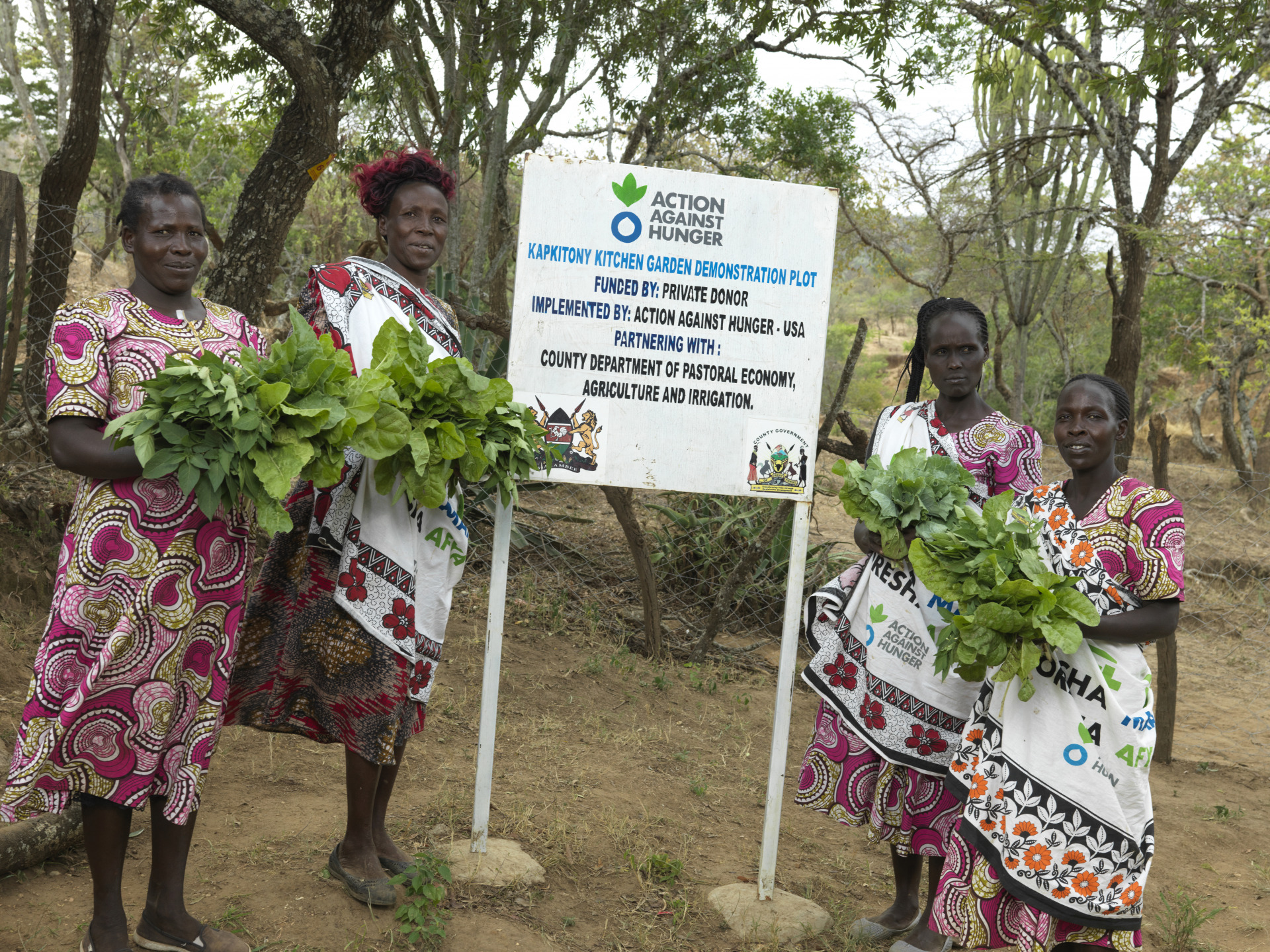
“Through this kitchen garden, we have enough vegetables for ourselves and the rest we sell in the market for additional money,” adds Rosina, who is also a member of the women’s savings and loans group. All six children of her children have been able to stay in school thanks to the profits from the extra produce of her kitchen garden.
With the food for the family secured and with a successful business in place, Rosina and her fellow mothers dream of expanding their garden to cultivate a larger plot of land.
“I want to say thank you to Action Against Hunger,” says Rosina. “This knowledge has really changed our lives. If I compare how we were living before to how we are now, I can say our future is bright.”
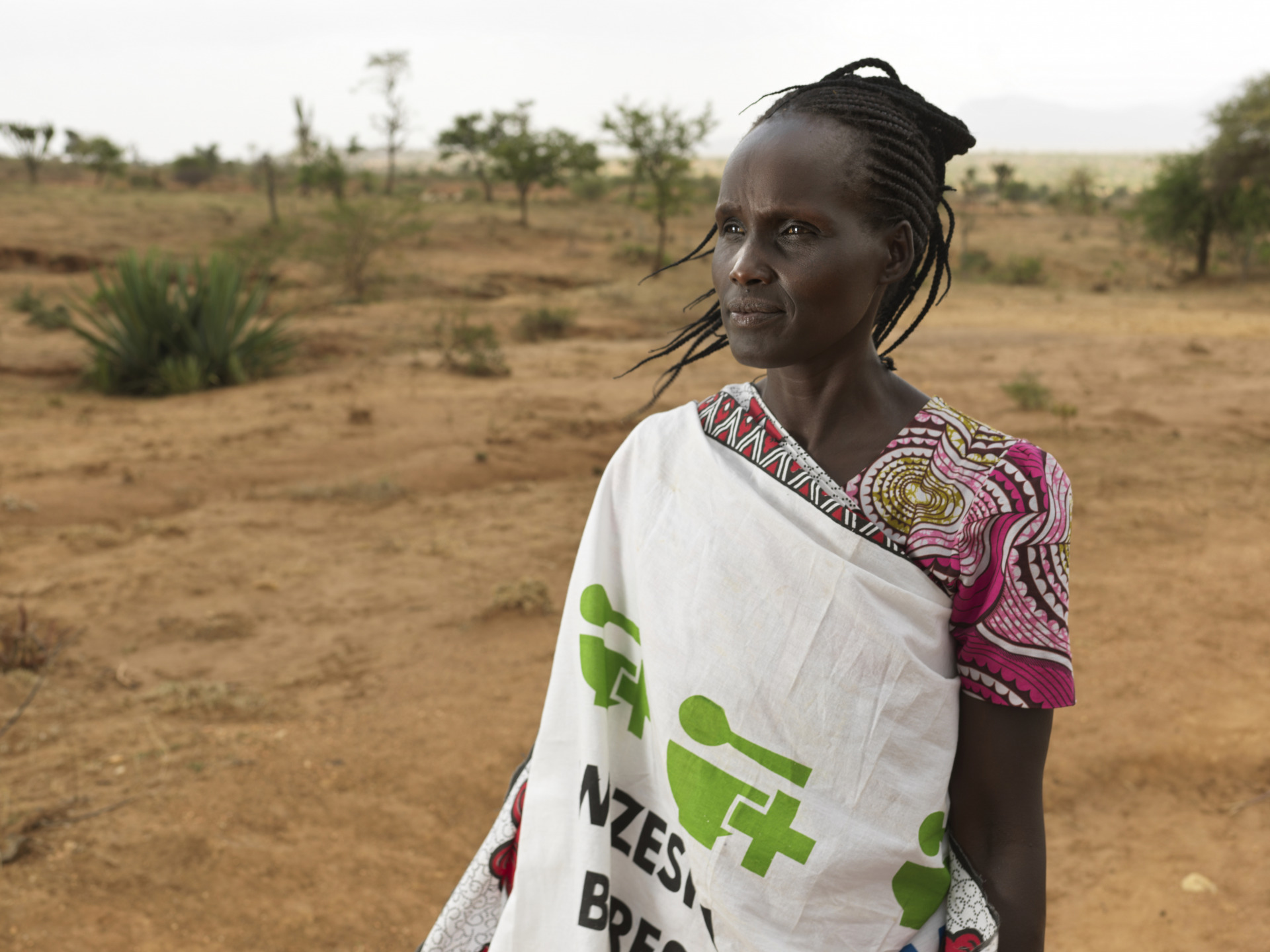

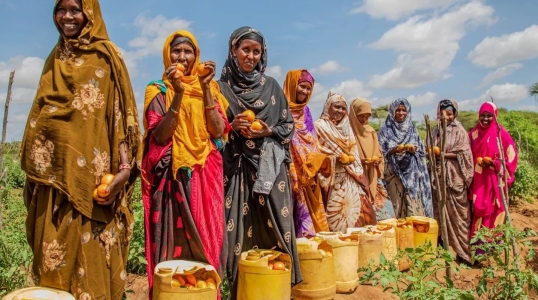
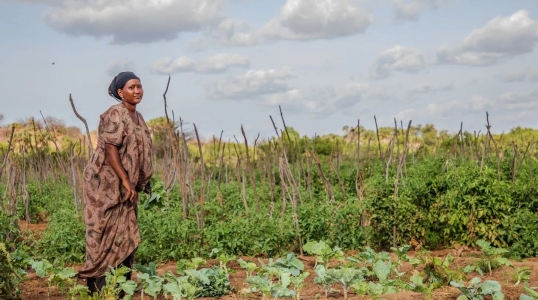
Join our community of supporters passionate about ending world hunger.